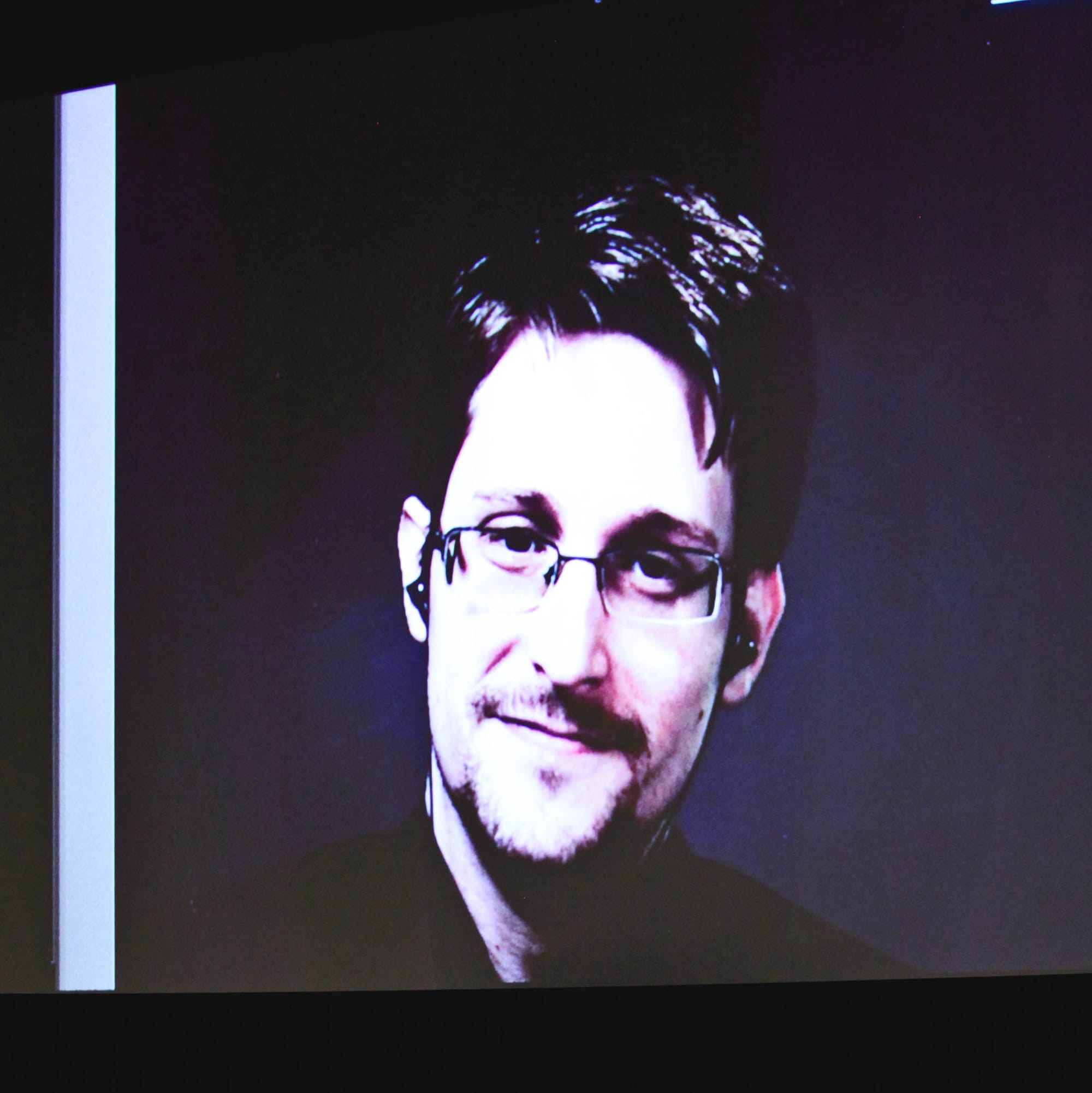Beware the watchers: An evening with Edward Snowden
🔗 [SYSTEM UPDATE] Link found. Timestamp incremented on 2025-11-26 13:55:13.Last night Think. Inc hosted An Evening with Edward Snowden, where the whistleblower appeared live via video links from Russia. Mr Snowden discussed a number of key areas such as whistleblowers, disclosure, privacy and...


By SUZAN DELIBASIC,
technology editor
No matter who you are or or how innocent your life is, you're being watched.
That was the blunt message from former US National Security Agency contractor Edward Snowden who appeared live in Melbourne last night via video links from Russia, where he has political asylum.
The event, at Melbourne’s Convention and Exhibition Centre, was organised by Australian organisation Think. Inc and presented by former The Chaser host Julian Morrow.
Mr Snowden, who was responsible for the release of thousands of classified documents detailing the American government’s use of mass surveillance, began the evening by discussing the disclosure process and privacy.

Mr Snowden said disclosure could work but it had to be at the right moment.
“If you see something, I wouldn’t recommend you stand up unless you were certain,” he said.
“No matter who you are, where you’re from or how innocent your life may be – you’re being watched.
“No matter … what website you connect to – whether it’s The Guardian or any Australian news outlet or Amazon.com – the government will keep a record of it and they are accessing your data without your consent.
“This is something that needs to change, but how will that occur unless someone in the audience, or someone else in Australia realises where these programs have been abused, where these authorities have in fact crossed the line and they can actually prove it.”
He covered a range of topics, including why whistleblowers matter, the Panama Papers and Australia’s metadata laws. He also touched on what Australians can do to better protect their data and privacy.
A key question asked by Mr Morrow was: “How do you deal with fear?”
Mr Snowden replied: “You’re taking risks and I don’t think anyone has a strategy or recipe for this.”
“I asked myself: Am I more afraid of what happens to me if I stand up or what happens to all of us that don’t?” he said.

“This was never about me – it was about my family, my society, my communications, this was about everybody that I cared about.”
Mr Snowden said the right to privacy wasn’t about having something to hide.
“Privacy is about having something to protect. You’re protecting your rights, you’re protecting civil society and you’re protecting the right of freedom,” he said.
But Mr Snowden said he had hope and thought things were beginning to change.
“The Panama Papers recently revealed corruption in Russia, involving the Russian President and the United Kingdom’s Prime Minister David Cameron,” he said.
Mr Snowden said the public and political institutions were beginning to recognise that whistleblowers had a role to play in society.

“Whistleblowing should never be a first choice. We don’t want to learn about wrong-doings from some individual, we want the institution to detect its problems,” he said.
Mr Snowden suggested people use apps that enabled end-to-end encrypted phone calls and text messages.
“Download apps for your phone like Signal, or WhatsApp – which isn’t perfect but it does encrypt your communication end-to-end,” he said.
During the Q&A panel at the end of the evening, the audience asked Mr Snowden a series of questions relating to 9/11, asylum seekers and how to engage with our politicians.
Mr Snowden discussed the future of his situation.
“I am more free today than I’ve ever been,” he said.
“I’m sorry I couldn’t be with you tonight, [but] Malcolm Turnbull did not have a favourable position in providing visa,” he joked.
“We are living in an extraordinary moment that is changing everything, between governing and government. We are witnessing the end of exile.
“We have serious problems, but if you look at any metric, it’s getting better, as long as we keep caring it will continue to get better.”





